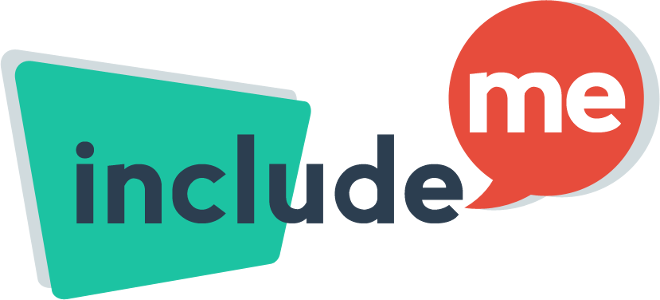Listening: A Key to Positive Relationships
Learning objectives:
- Identify non-listening behaviors.
- Understand the impact of listening and non-listening on relationships with others.
- Name effective listening behaviors.
- Strengthen their ability to use good listening behaviors.
- Identify listening behaviors they do well and one they want to improve.
Length of the session
Materials Needed
Visual means for recording ideas
(paper, chart paper, or white/chalk board and markers/chalk)
Discussion
duration of activity
Ask participants
if either of the situations below has ever happened to them.
Situation #1
You are very excited about something that has happened. Perhaps you have a new job, your new enterprise is all set to begin, you were given a gift or something else important. You want to tell your best friend about what has happened. However, he or she is more concerned about something else, and you don’t feel like he or she is really listening.
Situation #2
A friend said you did something you didn’t do. He or she is telling lots of people, and you are upset. You want to talk to another friend about it, but he or she doesn’t seem to be really listening. Ask participants:
How did you, or would you, feel in these situations?
What do people do or say that make you think they are not listening?
Record the non-listening behaviors, such as interrupting, using a cell phone, ignoring, and talking about other things, on chart paper or the white/chalk board.
State that listening is an important skill to use if we want to have positive relationships with others.
Facilitator’s Input, Demonstration and Discussion
Facilitator’s Input, Demonstration and Discussion
duration of activity
Ask participants
that a volunteer has offered to help you with a demonstration.
Ask the volunteer to come to the front of the room.
Tell the participants the volunteer will be telling you about an activity he or she enjoys, his or her favorite food, or the volunteer’s choice of topic.
Be sure to select a topic the volunteer is comfortable talking about in front of the group. Encourage participants to watch what you do and be ready to tell you how well you listened to the volunteer. As the volunteer talks with you, demonstrate non-listening behaviors. For example: Interrupt the volunteer when he or she is speaking; Ignore the volunteer; Talk about other things; Avoid making eye contact with the volunteer; Using cell phone; Show impatience, such as move around, get a drink, and fidget; Fix your hair…
to rate your listening skills.
Have them hold up one finger if they think you were a good listener and two fingers if they think your listening skills could be improved. Acknowledge that you were demonstrating non-listening behaviors. Ask the volunteer:
Ask participants
How did it feel
to try to talk with me when I was not listening? What did you want to do? How do you think our relationship might be affected if this was a real situation?
Ask the group observing the demonstration for their responses to the last question.
Explain the importance of listening to create and maintain positive relationships. Use the following ideas and add your own.
you will demonstrate effective listening behaviors in a role-play with the same volunteer.
Use the same topic.
Ask the observers to watch what you do as a listener and be ready to share with the group what they noticed as effective listening behaviors. After the role-play, ask the observers which effective listening behaviors they noticed. Record their ideas visually so that participants can see the ideas. Be sure to include appropriate behaviors from the list below.
Tell participants
- Look at the person who is talking.
- Try to understand the speaker.
- Give uninterrupted time to the speaker.
- Don’t interrupt or think about other things.
- Ask questions to help the speaker say his or her ideas clearly so that you understand.
Ask the volunteer
How did it feel to try to talk with me when I was listening to you? What did you want to do? How do you think our relationship might be affected if this was a real situation?
How do you think you might benefit from listening to others?
Ask participants
Group Activity/ Practice: Large Group Practice
duration of activity
Tell participants
they will have a chance to practice their listening skills using sample situations.
to suggest situations when they would want someone to listen to them. The situations could involve times when they were pleased or excited about something or times when they were upset or faced a problem. If possible, write a brief description or title for each situation on chart paper or the white/chalk board.
Ask participants
Facilitator’s Note:
If participants are reluctant to suggest situations, suggest some typical situations from your experience with the participants or choose culturally appropriate situations from the following ideas:
- You got paid for a job you did and received less money than you expected. You want to talk with a friend about your concern.
- You are not feeling well and left work early. You are afraid you will be fired. You want to talk to a friend or family member about the situation.
- Your family wants you to return to school. You do not like school, but feel pressured to go back. You want to talk to your brother or sister about how you are feeling.
- You want a job, but cannot find anyone to hire you. You want to talk to a friend or youth worker about it.
- Your boy/girlfriend told you he or she wants to end the relationship. You want to talk to a friend about the situation.
- You have a wonderful idea for an enterprise but are unable to gather funds to start the business. You want to talk to a friend/ youth worker about it.
Using one sample situation, ask participants to suggest possible questions a listener might ask to help the speaker clarify his or her ideas.
Record their ideas on chart paper or the white/chalk board.
Discussion
duration of activity
Select two or three questions from those listed below to ask participants:
Which of the listening behaviors were easy to do?
Which behaviors were difficult?
What do you think the benefits might be for listening carefully to other people?
How might listening to others impact your relationships with them?
What might happen to your relationships with others if you don’t listen carefully to them especially when they are telling you something that is very important?
How might listening skills help in a job search?












Recent tips